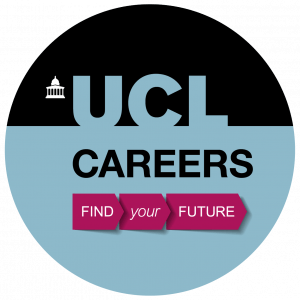 Welcome to Finance & Consultancy Month!
Welcome to Finance & Consultancy Month!
Explore your career options beyond academia
This year we have a whole new set of events giving you the opportunity to meet employers, discover new industries and learn key skills. Whether you are a member of research staff looking for a career change or a research student wanting to explore non-academic options – these events are for you! The term is set out into themed months focusing on a particular industry of choice based on the most desirable career destinations for researchers. Within these themed months we have a plethora of skills sessions, forums and blog content for you to engage with.
*For research students this programme of events is a part of the Doctoral Skills Development Programme and therefore training points are attributable*
Thinking about attending but not sure if it’s for you?
Research skills are becoming more vital to industries across the board, with the financial and consultancy industries being no different. For our first themed month, we have loads of chances for you to meet alumni working in these industries and gain vital careers support from organisations which hire at PhD/researcher level. All the alumni attending events completed PhDs and are therefore great examples of the kind of roles you could get into in these industries. Specifically, those roles which you may never have considered. Each themed month is designed to be accommodating to all degree backgrounds and therefore speakers and hosts will cover a wide range of industries and careers within finance and consultancy across the traditional and non-traditional sectors.
Whilst transitioning out of academia can be an unfamiliar and daunting prospect, there are tons of amazing organisations looking for researchers with specialist knowledge that can support their business. The financial and consultancy industries not exempt from this, and are some of the biggest research recruiters in the corporate business world. Whilst your background may not be in business-related subjects, the skills that you have learnt through studying both independently, as part of cross-college teams and the strategic planning of your research projects means you may have many of those basic core competencies required in this sector.
Interested? Here’s what’s coming up
During our forums and workshops, you will have the chance to meet recruitment specialists and alumni working in these industries – read more below! Alongside this, we will be having guest blogs and interviews from alumni who will be attending events to talk you through their career path. So even if you can’t attend an event, there are still plenty of ways for you to learn more about the industry. Want more specialist support? Here at careers, we have a dedicated team of experts who can support your researcher journey. Find out more here.
Interested in supporting businesses and individuals with your research expertise? Consultancy could be for you. Come along to our consultancy panel and hear from consultants working in the life sciences, financial services, health, and technology sectors.
Employer Forum: Careers in Consultancy
Weds 16 Oct 19, 5.30 – 7pm
As a rapidly growing industry that requires people with strong problem solving, research and specialist skills, consultancy firms are increasingly recruiting researchers. This forum gives you the opportunity to get an insight into consultancy from PhD level speakers who have paved a career for themselves in this industry. Find out more about what it takes to be a consultant, the wide range of industries and specialisms this covers and gain tips on how to get into this competitive industry. This is a key opportunity to gain an insight into a career you may not have previously considered.
Research students and staff book here
Capco, a global management and technology consultancy dedicated to the financial services and energy industries will be attending this event. I asked their representatives, Chris & Steve, both UCL Alumni and PhD holders to give us a key tip for researchers that they wish they’d know.
“Don’t underestimate how valuable your transferable skills are, and don’t be afraid of taking a step back in order to progress on a new path. When I started at Capco I was much older than my peers, and felt overeducated too, but that PhD experience built my intellectual confidence, my work ethic, my ability to deal with and explain complex problems and those things helped me to have a lot of success and work on some really interesting problems in my new industry” Chris Rahnejat & Steve Harrison, Capco
Find out more about who’s coming and what to expect on the event booking page
Wondering what your options are for a career in finance? There are tones of opportunities that could utilise your research skills. Come along to this panel covering careers in analysis, economics, forecasting, risk management and more.
Employer Forum: Careers in Finance
Mon 21 Oct 19, 5.30 – 7.30pm
Research skills are increasingly important to the finance industry with analysis, problem-solving and technical skills being ranked highly in a potential candidate. This forum gives you the opportunity to get an insight into finance from PhD level speakers who have paved a career for themselves in this industry. Find out more about what a career in finance encompasses, the wide range of industries and specialisms this covers and gain tips on how to find a researcher role. This is a key opportunity to gain an insight into a career you may not have previously considered.
Research students and staff book here
As an Economics Adviser for the Office for National Statistics, our first speaker on this panel Keith Lai has expertise on financial statistics. Keith provides in-depth economic analysis on important economic indicators such as GDP, inflation, unemployment etc., to enhance the public’s understanding of the latest development in the economy. We asked Keith “What’s your advice for someone looking for a role outside of academia?”
“be brave in branching out of your initial research expertise – all the skills developed during the PhD have way more transferability than you may think!” Keith Lai, ONS
Find out more about who’s coming and what to expect on the event booking page
But, how do I know if I like it or not? If you’re considering a career in consultancy but you’re unsure what the day to day might look like, come along to this taster session to give it a go!
Employer Taster Session in Consultancy
Tues 29 Oct 19, 12.30 – 2.30pm
This employer-led careers taster session for consultancy will allow you to experience a hypothetical task which someone in this role would undertake.
This is a practical opportunity to gain experience of a career in consultancy. Participate in a hypothetical task to improve your understanding of the industry and the types of careers available whilst networking with an organisation which hires researchers. This employer taster will highlight a career which has opportunities spanning across science, business, technology, data, the arts and more.
Research students and staff book here
Here’s how to book your space
This term we will be taking all research student and staff bookings for all researcher career events including both employer-led events and careers consultant-led workshops via the MyUCLCareers portal. If you’re a research student you’ll already have an account, just sign in with your standard UCL single sign-on user ID and password. For research staff, register your details with us to set up access to a myUCLCareers account – click here to see the guide. By streamlining our offerings through one platform we hope to offer you clearer, more detailed and consistent event content.
Any questions? Email us at careers.researchers@ucl.ac.uk
Research students – As this programme of events is a course part of the doctoral Skills development programme training points are still attributable.
All careers workshops and Forums run within the Doctoral Skills Development Programme are worth 1 training point. You must log this yourself on your Research Log – for further information on training points please refer to the Doctoral Skills Development programme website and follow the how-to guide
What else can you do to get career ready?
Alongside the employer-led sessions, we have our careers consultant-led programme of events. Details of the whole programme can be found here
We have separate Careers Consultant-led programmes of academic and non-academic career workshops. These specialist sessions are open to both research staff and students with some dedicated sessions for each.
Workshops are repeated throughout the year covering topics such as:
- Academic career planning
- Effective academic applications
- Effective academic interviews
- Identifying strengths, interests & values
- Finding non-academic jobs
- Marketing yourself (sessions on applications, interviews, LinkedIn)
- Workshops are repeated regularly throughout the year.
These programmes are for you. Learn a new skill, find out about an industry, or even just ask some questions to help settle your concerns – Get ahead of the game and take these opportunities to explore opportunities and develop yourself and your commercial awareness before you’ve even left academia.

Filed under Events, Panel discussion, PhD, Post Doc
Tags: careers, Consultancy, employability, finance, life sciences, management consultancy, PhD, PhD careers, research careers, ucl
No Comments »

 Close
Close











